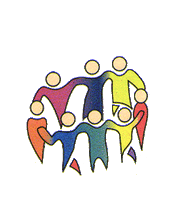 I'd like to begin a semi-regular exploration of practitioners and theoreticians that I have found invaluable in the formation of my work and worldview, in service to the idea that psychotherapeutic counseling be something that seekers participate in rather than simply consume. Many of my influences and the general approach I bring to the work of therapy are sadly uncommon in these days of managed care and brief solution focused programing. I have no illusion that I can reverse such trends, but I do believe that I can better highlight how my work differs and why that may be of value to clients I work with. First up is Dr. RD Laing a Scottish psychiatrist who wrote extensively on mental illness– in particular, the experience of psychosis. Laing's views on the causes and treatment of serious mental dysfunction, (strongly influenced by existential philosophy) ran counter to the psychiatric orthodoxy of the day (and continues to appear even more radical today) by taking the expressed feelings of the individual patient or client as valid descriptions of lived experience rather than simply as symptoms of some separate or underlying disorder. Laing's work has been crucial in informing how I approach the politics and practice of psychotherapy and how I choose to engage with clients. The following is a trailer for a delightful documentary titled “DidYou Used To Be RD Laing?” The Wikipedia Entry on RD Laing Biography from the Society for Langian Studies Quotes from RD Laing So what have I taken from the work of RD Laing? In the most simplistic of statements, I'd say it is the foundational belief that that psychotherapy is a co-creative experience of connection between two human beings rather than a "cure" for the sick offered by the all knowing expert.
1 Comment
Today’s post will be brief as duty calls me elsewhere. However, I’d like to take a moment to return to the physical (a favorite topic). I can’t stress how important engaging with our physical bodies is for emotional wellbeing. We are physical creatures immersed (for the most part) in an incredibly sedentary, non-physical daily experience. Now, more than ever, it is important to compensate for this by moving, stretching, and breathing. This need not be extreme. It need not involve a gym or a trainer or the expenditure of anything but time, motion and a little sweat. Move yourself! You just might be surprised at how it feels.  I constantly hear folks say things like “I tell myself it shouldn’t matter…” or “I told myself that wasn’t the best way to respond…” Very rarely, however, do I hear folks say “I listened to myself…” We’re wonderful “shoulders” ready, able and willing to beat ourselves up all day long for what we should or shouldn’t be doing or have done, great advice we ignored, how we botched a conversation, event or what-have-you. We’re not such wonderful listeners, skillfully tuning into our senses or inner dialogue in an honoring, supportive manner. I invite you to break this pattern. Take a moment, right now, to draw in a slow, deep breath. Exhale and really sink into your body. Feel your posture, the weight of your body in its chair. Notice any sensations that may arise. Don’t try to change them or judge them as good or bad. Just become aware of them. Then say (either aloud or in your mind) “If I were to honor myself fully right this moment I would…” and allow the sentence to complete itself with whatever arises. What arises need not be logical (or “good” or “bad”). Don’t second guess. Simply allow the sentence to complete itself. If it remains incomplete, no problem, just repeat the process. Eventually something will arise. Now—here’s the radical part—allow that sentence to be enacted, if at all possible (or strongly consider the message if action is inappropriate). Need to sit up straighter? Leave the office and walk around the building a time or two? Spend a moment stretching? Call a loved one? Love yourself? Get a drink of water? Cackle incoherently? Quit your job? End a failing relationship? I have no idea what you need to do. Or what the consequences would be for honoring your inner voice. But I’m very confident that you do or that you will find out. If only you’ll take the time (and risk) to listen. Communication…it ain’t always easy. Many is the couple I work with who, in the early days of navigating new ways of being, begin to attack each other with “therapy speak”. Needs are confused with wants. Thoughts confused with feelings. And the result is an argument as ferocious as ever before, ummet needs and resentment.
It's important to avoid the trap of using empowered communication as a weapon instead of a tool. For example, knowing that someone has just spoken a judgment is a poor excuse to proffer a judgment in return! Doing so will likely create an unmet need in them, which (ironically) is likely to be thrown back in your direction as a further judgment, and the only benefit you'll have gotten out of empowered communication is to have intimacy crippling arguments encased in thinly disguised psychobabble. The challenge shifts to a focus on process instead of on content. Yet the experience of dissatisfaction remains the same. Truth speaking is most powerful when all elements of one's truth are revealed. This is true vulnerability. It may be easy for me to scream, "You're so arrogant, you never let me speak!" It may be more challenging for to assert "I feel angry because I'm not being given a chance to respond to what you are saying." But it's likely most challenging to put the whole of my truth out there: "I'm afraid that you will dismiss what I'm about to say and I don't want to be dismissed. I feel angry because it seems like there's no space in this discussion for me to respond to what you are saying. I want you to hear me and I want o hear you. If we can't hear each other I don't know ho we will overcome this. Will you take a breath and really hear me?" The idea in this is not necessarily to change your "bad" words to something "good". Nor is it to change your partner from someone "bad" who won't listen to someone "good" who will. The idea is to change your experience so that you are able to experience more contact with yourself and your partner. In contact there is a greater opportunity for you to communicate with one another as equals and to speak from that place. No more, no less. To listen is to tolerate, while to hear is to take in. Do you hear those you care about? Do they hear you? |
AuthorBryan Dieterich, MA, LPC Archives
March 2020
Categories
All
|
 RSS Feed
RSS Feed
